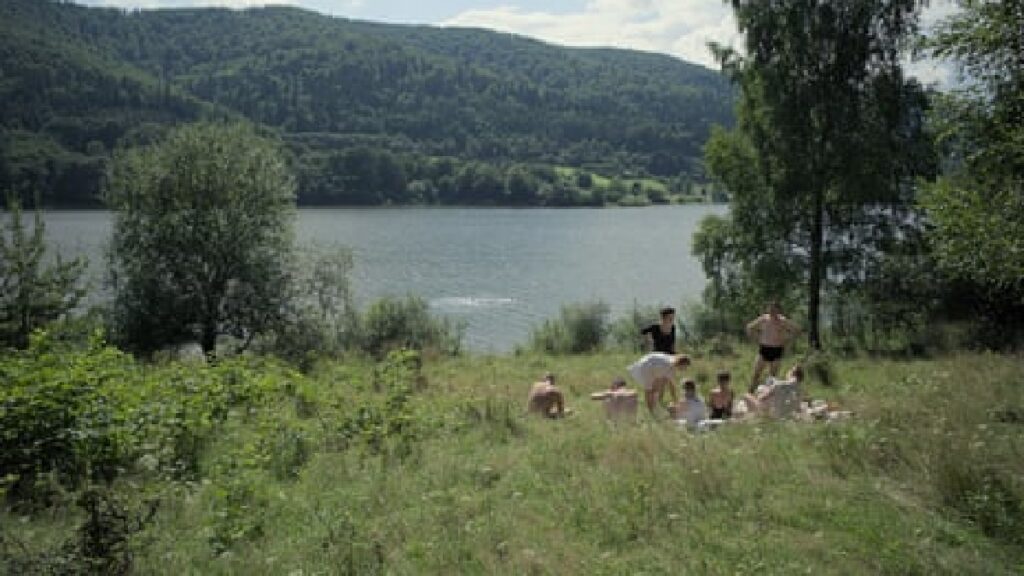There’s a unique genre of film that attempts the brave undertaking of doing justice in depicting horrific real-world events throughout human history. From World Wars to genocides, terror attacks and all sorts of violent acts, they have all been brought to the big screen in one way or another. These films, when done correctly are important in a multitude of ways. They can educate an audience, start a conversation about history or simply giving a face, if even a fictional one, to an event to help us connect to and understand the past better.
Jonathan Glazer’s The Zone of Interest, assuredly checks all the boxes in this sense. The film opened to acclaim and praise at the 76th Cannes Film Festival, even going as far as winning the Grand Prix. It’s a German-language film that depicts humans navigating events during the Holocaust, but not in the way many may think.
The film plays on our innate human interest and curiosity – the reason we cannot look away from a car crash or a disturbing pop-up video on our phone. Even when facing death, destruction and suffering, we often just can’t seem to tear our eyes away.
It depicts Rudolph Höss (Christian Friedel), a German SS officer and his family as they appear to be building and enjoying their life, family and home. They picnic lazily by a babbling river in the hazy summer atmosphere, host pool parties with drinks in hand, surrounded by splashing children, and they relax in their beautifully groomed yard in the sunshine.
Albeit all normal, seemingly mundane activities, but it’s when we notice a tall, brick wall lining this family’s property with barbed wire atop that drums a familiar pang in our heart. It’s now with this subtle yet screaming detail that Glazer wants us to piece together the truth — that the Höss family is living directly next to and outside of Auschwitz, the infamous Nazi death camp in Poland.
Suddenly as a viewer, we are to become acutely aware and deeply unsettled by the tiniest of details throughout the film, that Glazer cleverly maintains the domesticity and innocence of, and the horrors only build and add. We are not just watching children play in a pool on a hazy day, we are watching them splash around while the smoke of murdered Jews billows into the sky behind them. We watch a woman monotonously tend to her flower garden and wonder if we are just hearing the murmurings of composer Mica Levi’s eerie choral score, or if those are in fact screams, muffled and echoing in the distance.
The dialogue is stale and simple in the most authentic way, as if we are but a fly on the wall, listening in on their daily life, conversations and musings. Glazer doesn’t care to show us the atrocities of such time in history, though through his subtle style of filmmaking, genius sound design and devastating performances by his actors, life next to Auschwitz is portrayed as “normal” if not a bit of a nuisance.
If the gunshots disrupt the garden party then they sigh and turn the radio up, vines are planted on the wall to cover the view of “the Jews over there” and it’s a great annoyance and embarrassment to have a striped pajama-clad girl work around the house, in view of the Höss’ children and any guests. With this nonchalant lens depicting the literal next door to some of the most unimaginable horrors ever committed on the planet, Glazer gives us one of the most non-violent yet brutal Holocaust films ever made.
When we think of the Holocaust, films such as The Pianist and Schindler’s List may come to mind. They have unabashedly depicted the horrors humans are capable of implementing on one another. Often hard to watch, brutally honest and violent, but most importantly authentic, these films have famously stayed with audiences across the globe. Leaving a bit of them with every viewer, even if only visited once in a lifetime.
They are difficult yet imperative to watch, serving as an educational medium and crucial reminder of the past for generations to come. And Jonathan Glazer’s The Zone of Interest will be and is absolutely one of those films. His unique approach is unlike anything ever seen before, as he examines the darkness of humans and history in such an unassuming manner that reminds us of just how quiet and subtle human horror most oftentimes can be.

